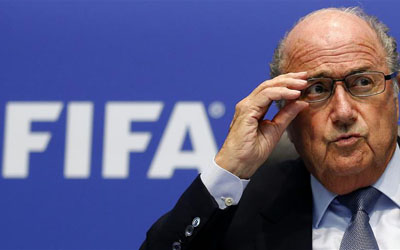Securing Sport 2014 Day One Roundup – Featuring WADA & FIFA
October 8, 2014
At least a quarter of world sport is involved in one way or another with organised crime, buy according to WADA Director General David Howman.
Howman was speaking at the fourth ICSS Securing Sport conference in London on Monday – the first edition of the event to be held outside of Qatar.
The conference aims to share the best practices of fighting corruption in sport – and Howman had a clear warning for assembled delegates.
“The biggest threat to sport is organised crime, arthritis ” he said. “I think organised crime controls at least 25 percent of world sport in one way or another.
“It’s the same guys corrupting people; they’re the same bad guys. The good guys have to prevail; let’s get them together and make sure they can work out a plan.”
Howman’s claim came from information gathered “from Interpol” and various other anti-corruption bodies investigating the infiltration of crime in sport.
He also called for an independent anti-corruption body in sport, allergist similar to the WADA model in which it would be funded partly by public money and partly by the sport movement itself.
“It would have an arm for bribery, an arm for corruption and arm for matchfixing. Let’s look at the practicalities of it” he added.
Blatter should resign, says transparency expert
FIFA president Sepp Blatter (pictured) should “resign for the good of the sport” of football, claimed a former FIFA Independent Governance Committee member.
Michael Hershman, founder of Transparency International (an anti-corruption watchdog), was involved in the FIFA reform process in the wake of alleged corruption scandals in 2010 – and was clear in who he thought should shoulder responsibility in the organisation.
“I think that president [Sepp] Blatter should resign for the good of the sport, and for the good of the organisation,” Hershman said. “He was in a leadership position when all of the scandals happened, and he hasn’t taken personal responsibility.
“It’s true that he hasn’t been found to have personal wrongdoing or been involved in personal wrongdoing but frankly my experience has been that when you have organisations that are continually under a cloud, one of the most effective ways to get out from under that cloud is to change the leadership.”
Hershman added that he encountered “pushback” on many suggestions when he was in the IGC. He even labelled the FIFA assignment as “the most difficult and most unsatisfying from my stand point”.
Now, FIFA is pushing back against the idea of publishing the Michael Garcia report into the World Cup 2018 and 2022 bidding processes.
The report is now in the hands of FIFA ethics judge Hans-Joachim Eckert, but many have called for it to be published – including executive committee members and even Garcia himself. FIFA has maintained that it should not do so because of confidentiality.
“If you look at ethics codes and investigatory bodies, you’ll often find confidentiality procedures but there are always exceptions to these rules and in a case like this, common sense should dictate what FIFA does rather than the written rule,” Hershman said.
“Even if people aren’t punished for one reason or another because there is no jurisdictional oversight, it will bring some clarity to what went on”.
Hearn calls for government intervention
Hershman also called for a closer relationship between sports organisations and politicians, something with which Barry Hearn, the chairman of Matchroom sports agreed with.
Hearn, who has a controlling interest in World Snooker Limited, knows well the dangers of corruption in sport having witnessed several high profile cases in Snooker over the past few years.
He maintained that governments should do more to help.
“We can’t afford this to spoil what sport adds to society and we have to take action,” he said. “We have to look for government intervention. I don’t think we’re capable of doing it ourselves, I don’t think we can fund it ourselves. We’re looking for more government intervention in sport.
“We’ve been complacent for too long. We’ll follow up as we do, all the time. Every single match is investigated; every single shot is looked at.
“But these are only the beginnings, the market is bigger than you would believe and temptation is bigger than it has ever been.”
Hearn claimed that “bigger sports” could afford to ride over a few problems to with corruption, but that smaller sports such as darts and snooker cannot afford to have their integrity devalued by such instances.


